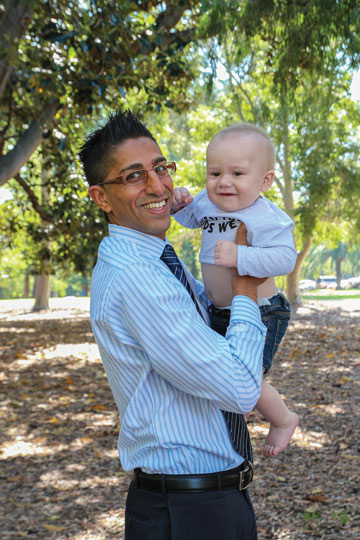Search
Showing results for "rishi kotecha"
Research
A Novel Missense Mutation Affecting the N-terminal Domain of SAP Protein in X-linked Lymphoproliferative DiseaseWe have revealed a novel SH2D1A gene mutation in a patient with XLP resulting in fulminant refractory EBV-driven HLH, which is a recognized severe complication
Research
Updates in infant acute lymphoblastic leukemia and the potential for targeted therapyOutcomes for infants diagnosed under 1 year of age with KMT2A-rearranged acute lymphoblastic leukemia (ALL) have remained stagnant over the past 20 years. Successive treatment protocols have previously focused on intensification of conventional chemotherapy, but increased treatment-related toxicity and chemoresistance have led to a plateau in survival.
Research
Successful treatment of a child with acute monoblastic leukaemia who relapsed with T-cell acute lymphoblastic leukaemia: A rare lineage switchRishi S. Kotecha MB ChB (Hons) MRCPCH FRACP PhD Co-Head, Leukaemia Translational Research rishi.kotecha@health.wa.gov.au Co-Head, Leukaemia
Research
Targeting the bone marrow microenvironment: a novel therapeutic strategy for pre-B acute lymphoblastic leukemiaOur findings shed light on the mechanisms of leukemia-induced bone loss
Research
Challenges and considerations for antifungal prophylaxis in children with acute myeloid leukemiaChildren receiving treatment for acute myeloid leukemia (AML) are at high risk of invasive fungal disease (IFD). Evidence from pediatric studies support the efficacy of antifungal prophylaxis in reducing the burden of IFD in children receiving therapy for AML, yet existing antifungal agents have specific limitations and comparative data to inform the optimal prophylactic approach are lacking.
Research
Pharmacokinetics of PEGasparaginase in Infants with Acute Lymphoblastic LeukemiaPEGasparaginase is known to be a critical drug for treating pediatric acute lymphoblastic leukemia (ALL), however, there is insufficient evidence to determine the optimal dose for infants who are less than one year of age at diagnosis. This international study was conducted to identify the pharmacokinetics of PEGasparaginase in infants with newly diagnosed ALL and gather insight into the clearance and dosing of this population.

News & Events
Drug find could represent big win for our little patientsDr Rishi Kotecha knows too well the devastation of a leukaemia diagnosis in a child, treating children as a consultant at Princess Margaret Hospital.
Research
KMT2A-rearranged acute lymphoblastic leukaemiaKMT2A-rearranged acute lymphoblastic leukaemia (ALL) represents a high risk subtype of childhood ALL. Historical treatment strategies have comprised of intensification with conventional chemotherapy. However, outcomes have remained consistently poor compared to the advances that have been seen for other ALL subtypes, particularly for infants diagnosed before their first birthday
Research
Returning raw genomic data to research participants in a pediatric cancer precision medicine trialIn pediatric cancer precision medicine clinical trials settings, parents proactively seeking treatment and answers to causation may request return of their child's raw data and/or biospecimen. To satisfy such requests, the ZERO Childhood Cancer Program required a guidance document.
Research
Combining CRISPR-Cas9 and TCR exchange to generate a safe and efficient cord blood-derived T cell product for pediatric relapsed AMLHematopoietic cell transplantation (HCT) is an effective treatment for pediatric patients with high-risk, refractory, or relapsed acute myeloid leukemia (AML). However, a large proportion of transplanted patients eventually die due to relapse. To improve overall survival, we propose a combined strategy based on cord blood (CB)-HCT with the application of AML-specific T cell receptor (TCR)-engineered T cell therapy derived from the same CB graft.
